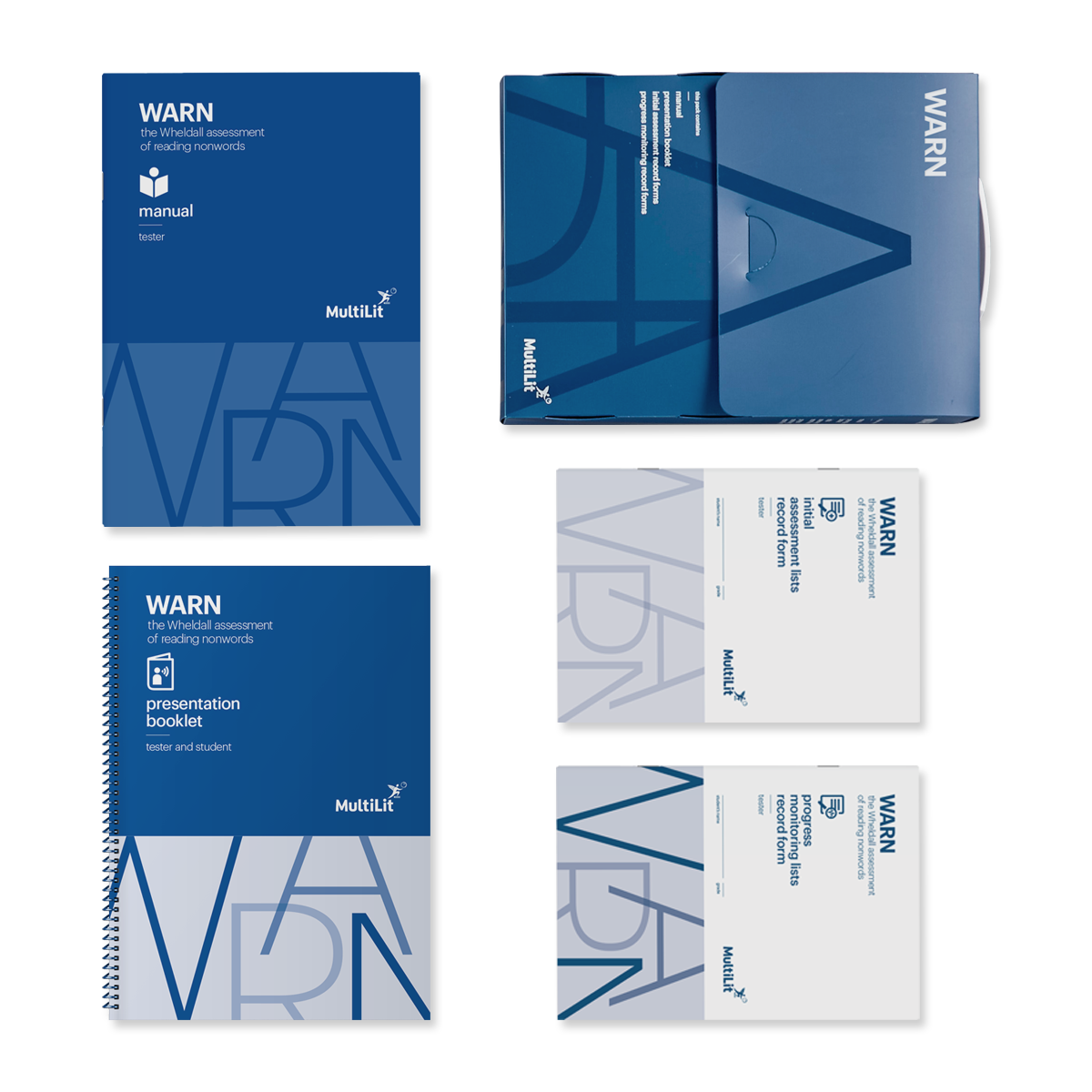The tools for success
For schools and educators, using literacy assessment tools is critical in being able to determine which students need additional support, as well as monitoring their progress. To do this effectively, schools need to select appropriate assessment tools, implement early intervention programs, and engage with ongoing monitoring. MultiLit’s range of assessment tools are specifically designed to help schools quickly and accurately determine the literacy needs of their students.
Dr Alison Madelaine, Senior Research Fellow in the MultiLit Research Unit and co-author of several MultiLit assessment tools, shares her insights below.

Selecting appropriate assessment tools for literacy
Teachers need to know if students are making progress in literacy, whether additional support or intervention is required, and measure the outcomes being achieved. This requires the effective and timely use of quality assessment tools. When considering literacy, a holistic approach is needed to measure different aspects of literacy at different stages of development.
Alison states: “The right tools give teachers valuable information such as what to teach, whether students are learning what they are teaching, whether their students need extra practice or review, and how much was learnt when instruction has ended.”
When assessing and monitoring students’ reading fluency, the Wheldall Assessment of Reading Nonwords (WARN) is ideal for students at the very beginning stage of reading development, as it measures their ability to decode nonwords — and therefore their ability to use the phonics skills they’re learning in class.
When students get further in their literacy development, real words need to be used to assess and monitor reading fluency. The Wheldall Assessment of Reading Lists (WARL) uses word lists to assess the progress of younger readers in Year 1 and 2, because at this stage children are using more than just phonics to read words.
In the upper primary years, students are more automatic at word reading and can negotiate punctuation and use expression in their reading. The Wheldall Assessment of Reading Passages (WARP) has been designed to track the development of reading fluency. WARP can also be used to identify low-progress readers, and to monitor their reading performance over time, using a quick, simple and definitive test of oral reading fluency.
All three methods of assessing and monitoring reading fluency have been found to be valid and reliable.
MultiLit also offers the new Wheldall Sentence Comprehension Screener (WSCS), designed to identify young children who may require targeted language comprehension assessment or support. Not only does this support literacy development as comprehension is essential to understand written text, it’s also important for classroom engagement and social participation.
The positive effect of early intervention
Identifying issues in literacy early, with the effective use of valid assessment tools, is vital. If students are not keeping up with their peers as they progress through the grades, the gap becomes wider — having a compound effect.
Alison notes: “Once students reach the upper grades of primary school, there is so much to catch up on. The gap between students with reading difficulties and their peers is wider, making it more challenging to find the instructional time for everything students need to learn.”
This is one of the main reasons early literacy intervention is so important. If teachers are able to intervene early, there is less for students to catch up on. Literacy is an essential skill for success in all areas of learning. Providing early literacy intervention in the first few years of school makes it possible for students to be more successful in other curriculum areas and increase their confidence and engagement in learning.
Monitoring progress over time
Ongoing monitoring is also an important step in literacy assessment, as it can alert teachers to students who may not making enough progress, so that intervention can be provided.
MultiLit’s InitiaLit suite, MiniLit Sage and MacqLit have ongoing progress monitoring tests built into the programs, appropriate to each age and stage of learning.
For students with reading difficulties who are receiving intervention, it is recommended that progress monitoring tools, like WARN, WARL and WARP, be administered every two weeks during school terms. They are time efficient and only take between 30 seconds to one minute per list/passage, per student. Each tool has its respective place and should be used in unison, to ensure a comprehensive assessment of all students.
Most of the assessment tools MultiLit offers are appropriate for ongoing monitoring, such as WARN, WARL and WARP.
The Wheldall Sentence Comprehension Screener (WSCS) is a screening test that takes about 5-10 minutes to complete. It has been developed to identify young children who may need support in language comprehension and identify children who may benefit from MultiLit’s LanguageLift program.
MultiLit’s assessment tools have been validated through national benchmarking data and extensive trials. Knowing when, where and with what frequency to use them is critical to the success of your students. If you wish to implement a program of effective literacy assessment, please reach out to the specialists at MultiLit for advice.
MultiLit’s School Partnerships team can provide information on MultiLit’s assessment tools, implementation and training strategies, and how they can help your students achieve improved literacy outcomes.